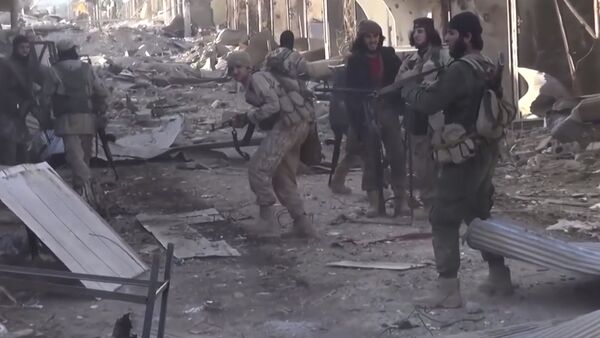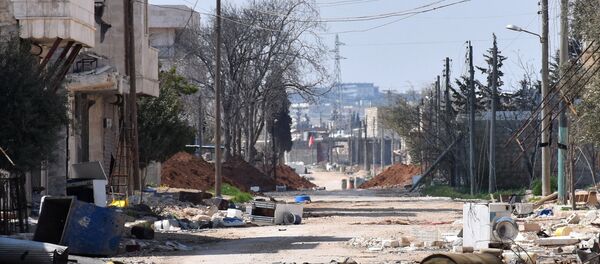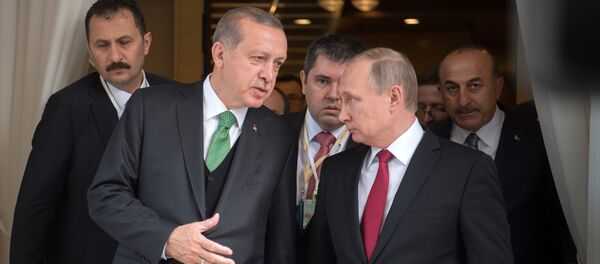"The President [Erdogan] and I operate on the premise – I already mentioned this – that the Syrian crisis can be resolved exclusively through political means. However, to set this political process in motion, it is necessary to ensure a ceasefire. As the countries that made the greatest contribution to this formula and the practical side of ending hostilities, Russia, Turkey, and Iran have never stopped thinking about ways to bolster the ceasefire," Vladimir Putin said when answering a question about the creation of the so-called "safe zones" or "de-escalation" zones in Syria. He explained that such zones might become one of the mechanisms to that would guarantee an end to the bloodshed and create conditions for the initiation of a political dialogue.
The Russian leader further elaborated that he has discussed the issue by phone with Donald Trump and the US administration "supports these ideas." Russia has also held consultations with Damascus and Tehran on the issue.
Also on Wednesday, the Syrian Foreign Ministry said that Damascus supports Russia's proposal on de-escalation zones.
"For the sake of ending the bloodshed among the Syrian people, beginning with the readiness for any proposals conducive to the return of the Syrian people to a peaceful life… The Syrian Arab Republic supports Russia's proposals for creating zones of reduced tensions and pledges to implement the ceasefire agreement signed on December 30, 2016," the Ministry said in its statement.
The fourth round of international talks on Syria kicked off in Astana on Wednesday. The talks are to last two days; on Thursday bilateral meetings between delegations continued; a general plenary session is scheduled to take place afterwards.
"We proceed from the premise that the participants in the conflict who gathered in Astana today [Wednesday] will make the final decision, because, ultimately, the future of their country depends on them. As guarantors of the ceasefire, Turkey, Iran, and Russia will do their best to ensure that these mechanisms get better and are effective. We will support this proposal," Vladimir Putin said in Sochi.
Following the meetings in Astana, there are plans to adopt a number of documents, including on four safe zones in Syria.
Commenting on the initiative, Russian military analyst, retired Maj. Gen. Vladimir Bogatyrev, chair of the Board of the Russian National Association of Retired Military Officers, the prospect of creating the safe zones in Syria became a reality only due to the noticeable success of the Syrian Arab Army.
"The joint efforts on the creation of these de-escalation zones, which were first proposed by Russia, then Turkey and Syria, and then supported and voiced by the US, come as a definite step forward, towards the political settlement of the crisis," he said.
The military analyst explained that a large number of villages and settlements joined the ceasefire, which was also supported by a number of armed groups. Thus, he said, conditions were set for the declaration of some Syrian territories as "zones without war."
Vladimir Bogatyrev noted that Russia has clearly specified the preconditions for the setup of such zones.
"At the press conference, our President has made it absolutely clear that the setup of such zones will only be possible when all the armed groups operating within these territories make sure that there is no any military threat there. Only in this case will such zones be called "safe" or "zones of reconciliation," he said.





